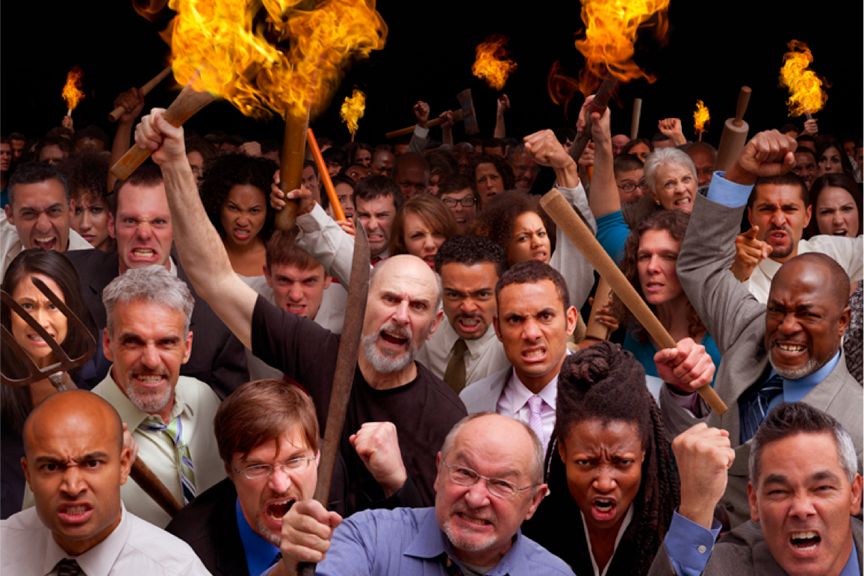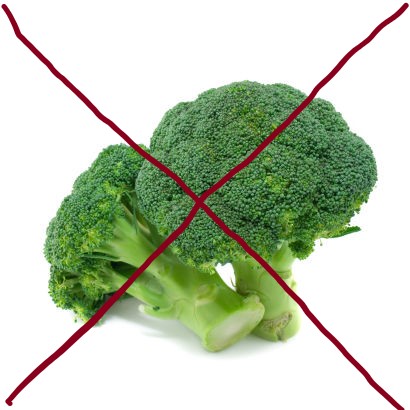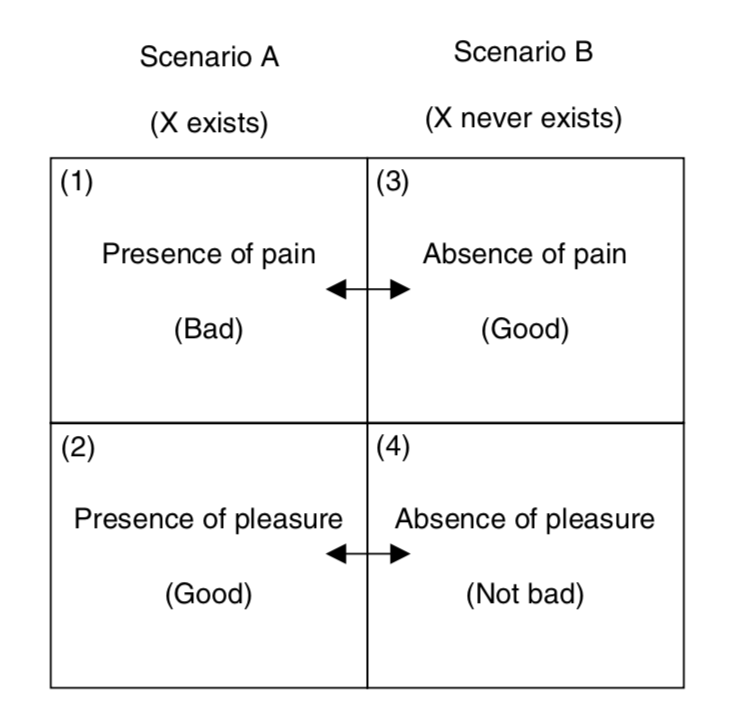Vital to a lot of ethical discussions is the question ”what is good and bad?” The answer is they are sensations, and sensations are in fact real, good and bad are words we use to refer to them, adjectives for the nouns pain and pleasure I would argue.
Pain and pleasure, these are objectively existent brain states. Pain is a useful motivator, at some point, organisms developed the ability for consciousness, a fish will struggle much harder to survive and replicate itself, motivated by pain and pleasure, feeling pain when it is stuck in a situation that would hinder its success at making more fish copies of itself, like starvation or another animal biting it, trying to rip it out of the water.
Nature accidentally, unintentionally invented a motivational mechanism called suffering that helps the organisms that can feel it survive better than non-feeling organisms, it’s not a delusion that this mechanism is really happening in animals.
Can we put pain, suffering, negative valence into a petri dish and analyze it? No, but we can easily prove it by experience, unlike supernatural claims about gods, unicorns or ghosts. The manual is in general rather simple, you can easily just stick a knife into your eye, now you know what negative qualia is, this doesn’t work the same way for rubbing your hands together and hoping that a unicorn appears, it’s not a religious dogma.
I think the organisms that experience negative qualia are often confused about whether or not negative qualia exists, because it is often produced in different organisms by different objects, which then leads them to conclude value relativism, i.e ”what is bad is a matter of opinion and taste”, when what is happening in reality is that they simply fail to identify the sensations in and of themselves as pre-determined labels of goodness and badness.
- Different subjects experience different sensation in response to different objects, circumstances, phenomena, this is not proof that the sensation itself does not exist, just that it is caused by different objects, circumstances, phenomena.
Person A has an almond allergy, upon ingesting almonds, they experience an allergic reaction, triggering the production of pain/suffering/negative qualia.
Person B has a peanut allergy, upon ingesting peanuts, they experience an allergic reaction, triggering the production of pain/suffering/negative qualia.
On the other hand, person A experiences pleasure in response to peanuts, whereas person B experiences pleasure in response to almonds.
So does this mean that bad is just a matter of opinion? No, it just means that bad is caused by different objects in different subjects.
In person A, badness was caused by almonds, in person B, badness was caused by peanuts, but they still equally experienced an instantiation of badness/negative qualia, and that sensation is real, they both objectively speaking felt bad in response to a different object.
To conclude that therefore value is relative, just because different sensations are caused by different objects in different subjects, would be as ridiculous as to conclude that because two individuals broke their legs due to different causes, broken legs don’t exist, or that because two individuals died of different causes, the dying process doesn’t really exist, it’s a matter of opinion.
Person A broke their leg being thrown off of a mountain by a bear, person B broke their leg having a bicycle accident. Therefore, broken legs don’t exist, because broken legs are caused by different phenomena in different subjects. Person A died of cancer, person B died of AIDS, therefore, dying is not real, because it has different causes. Person A suffers feels negative in response to almonds, person B feels negative in response to peanuts, therefore, negative qualia is not real, because it has different causes.
That is the inane assumption value relativists are making.
Similarly, they frequently like to pretend that the goodness or badness of a sensation is determined by what we deem it or acknowledge the sensation to be, something along the lines of:
- ”But pain isn’t really bad, bad is just a personal value judgement.”
So when I stub my toe, it does not really feel bad, it feels like absolutely nothing at first, and then I sit down and think long and hard about what I’m going to label my sensation, good or bad? Then I label it bad, although I could have easily avoided feeling bad by labelling it good, and only then the sensation of stubbing my toe, that initially felt like absolutely nothing whatsoever, starts to feel really bad – when I deem it to be bad – otherwise it is not bad.
I just had a cactus rammed up my asshole, but this does not really feel bad, I only personally judge it to feel bad for no logical reason at some point afterwards, and then it starts to feel bad.
It’s idiotic, because it would be impossible to personally judge a sensation on anything other than what it feels like. It had to feel bad, or otherwise you have no information that you could judge it as bad based on, for it to be acknowledged as bad, it has to feel a certain way, i.e bad, otherwise there’d be no way to later on judge and acknowledge it as bad either.
If the sensation literally just felt like nothing whatsoever, how would we judge it to be good or bad? How would we acknowledge it as anything? We couldn’t.
- Based on personal preferences perhaps? You label some sensations as good or bad based on what you personally like or don’t like?
Even that reasoning would fail, because preference is not disconnected from this fundamental fact that you can objectively feel bad or less bad either.
What is preference, as in, I like apples but I don’t like oranges supposed to mean, if not ”apples make me feel better” and ”oranges make me feel worse”? What is I like vaginas but I don’t like horse cocks supposed to mean, if not ”vaginas make me feel better” and ”horse cocks turn me off”?
- All preference means is certain things make you feel good – so that already concedes the existence of objective value, i.e good and bad feelings objectively exist.
Fact is, preference is already a term that concedes the existence of objective value, all that having a preference for something means is that it improves your welfare, your welfare that objectively exists. You have a preference for the apple, so that means you feel better when you eat them. If that weren’t the case, and they’d make you feel worse in every possible, conceivable way, then it would be incorrect to say you have a preference for apples.
- Sensations are predetermined for you, they come with – or rather intrinsically are – certain qualities. There is no such thing as a false pain, a false sensation.
The notion of someone having a false pain is bigoted and incoherent, all that can happen is that someone fails to correctly identify the cause of their pain, or that they are feeling pain because they believe in the existence of a threat that does not exist – i.e you feel frightened and pained in your leg because you have a delusion that a demon is gnawing on your leg.
But none of that changes the fact that the person is still experiencing pain, suffering, qualitatively negative sensation, so it’s not a false pain – you either feel it or you don’t feel it, you can’t point at such an experience of a schizophrenic who feels pain in their leg because they believe a demon is gnawing on it and say ”that is contradictory, false non-sense, just like saying one plus one equals three!” – because it is simply not, it is a real sensation, there’s no debating that they have an actual brain, and that that actual brain is creating a sensation.
You might say they fail to correctly identify the source of their pain, or they feel it because they are frightened by something that does not exist, i.e they are delusional, they think a threat exists although it does not exist, but that’s all. If the sensation is happening, it is real, there is no false sensation in that sense.
Then value relativists and absolute nihilists frequently like to get into even more incoherent thought patterns of concluding that bad sensations aren’t real, because they only exist in organisms that are able to feel them, but not in trees or computers, ”the universe” is an all-around favorite here.
- ”Well, to the girl I’m brutally raping, rape might be bad, but, fact is, the universe does not care about rape, the universe doesn’t think rape is bad, so it’s not really bad”.
- ”But notions of ”bad” and ”good” only exist if sentient beings exist, they don’t exist somewhere else in our careless universe, so it’s just a notion in the girl’s head that it is bad when I’m brutally raping her”.
This is simply them failing to acknowledge that some facts are contingent on other facts.
Bad sensations only exist if sentient organisms that can feel feelings exist, but the fact is that feeling organisms exist, so as long as that’s the case, bad sensation exists.
A road that is 10 miles long is only 10 miles long if prior the last 5 miles of that road, there are another 5 miles that then ultimately add it up to 10 miles.
Another thing to point out with this relativist/nihilist argument is also that of course if these objects they are appealing to, e.g. ”the universe” would actually start to feel feelings, they would just dismiss it on the same basis that they are now dismissing the experiences of sentient organisms on.
So if someone like that is brutally raping a girl and says ”but it’s not really bad, because, uh, the tree that is standing next to me doesn’t think it’s bad!” – we just need to create a hypothetical scenario in which a tree could feel suffering.
So let’s say we now have a sentient tree that is observing the rape and also says ”stop raping, rape is bad, I’m the anti-rape tree!” – then the nihilist would just dismiss it on the same basis:
- ”But rape is only bad TO the girl I’m raping AND the tree, it’s not bad to, uh, the sun. See, the sun doesn’t care, it’s only the irrational rape victim and the tree with their irrational ”bad” feelings” that have a problem with rape!”.
Fine, so let’s say we now have a sentient sun that is observing the rape and also says ”stop raping, rape is bad, I’m the anti-rape sun!” – then the nihilist would just dismiss it on the same basis:
”But rape is only bad TO the girl I’m raping AND the tree AND the sun, it’s not bad to the universe. Ha! See, the universe doesn’t care, it’s only the irrational rape victim, the tree and the sun with their irrational ”bad feelings” that have a problem with rape”.
So let’s say we now have a sentient universe that is observing the rape and also says ”stop raping, rape is bad, I’m the anti-rape universe!” – then…you know the conclusion.
Ultimately, the nihilist is just saying ”because bad is really happening, it is not really happening because it’s only happening in things in which it can happen after all” – truly bad sensations somehow aren’t really real because they happen in organisms that can feel them, and not outside of them in trees or stones.
- So some of them might concede at some point that bad sensations can exist, but then the next question of obligation comes in: ”why shouldn’t I cause suffering to others?”.
Because you care about it when it happens to you based on the fact that it feels bad.
There are categories, like ”worthy of being prevented” or ”worthy of being repeated” in your mind when you navigate the world, and the fact is that you put suffering into ”worthy of being prevented” based on the fact that it feels bad.
So if I can find you another organism that can also feel bad, like your mother, or a pig, or an octopus, your obligation is the same – suffering is worthy of prevention because it feels bad, and your mother, the pig, the octopus feel bad when I stick a knife in their eye, so you ought to stop me, unless I’m preventing even more badness by sticking a knife in them.
If you want to say that you only think of suffering as worthy of prevention because it happens to you in particular, then we would arrive at the conclusion that you ought to avoid pleasure just as much as you are trying to avoid suffering, because pleasure also sometimes happens to you in particular, same category, so if that qualifies suffering as worth avoiding ”it happens to me”, then you would try to avoid the orgasm just as much as the knife in your cock.
If I say I should flush shit down my toilet because of a characteristic intrinsic to shit, i.e it’s shitty, then I should also flush it down when I shit in a different toilet, because it’s still shitty, if it’s on the other hand only worthy of being flushed down my toilet because it sits in my toilet in particular, not in your’s, then I must also flush my credit card down my toilet if it were to fall into it.
In conclusion, truly bad sensations exist, and if you think of them as worthy of being prevented because they really feel bad, then you ought to prevent them for others as well, if they are worthy of being prevented because they happen to you, then any sensation that happens to you is worth avoiding by virtue of happening to you.
So you either have to think of suffering in other organisms just as worthy of prevention as in you, or you have to start treating pleasure and suffering as equivalents when they happen to you, which is physically impossible anyway because if you avoid suffering, you feel pleasure, and if you avoid pleasure, you feel suffering, so it would be an impossible task.
You put yourself into category ”worthy of consideration/protection from harm” based on a certain characteristic, which is sentience/consciousness, others share this characteristic with you, so they logically have to go into the same category.








